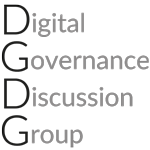By Regine Grienberger and Lilian Georgieva-Weiche.
Global endeavors to achieve the UN Sustainable Development Goals (SDGs) are increasingly gearing up speed and digital technologies together with online connectivity are among the key agents for change. All efforts should have one common vision in mind: one where all citizens of the world have access to a safe, enriching, and productive online experience at a reasonable cost.
However, as we try to bridge the digital divide, we face a crucial balancing act: While digital transformation promises substantial economic and social benefits, it also opens the door to heightened cybersecurity risks, with significant political and economic implications for all countries alike.
Continue reading “Building Cyber Resilience for Sustainable Development”